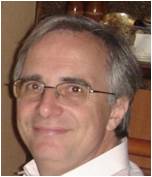 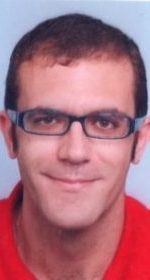 |
Carlos Delgado KloosCarlos Delgado Kloos received a PhD degree in Computer Science from the Technische Universität München and a PhD degree in Telecommunications Engineering from the Universidad Politécnica de Madrid. He is currently Full Professor of Telematics Engineering at the Universidad Carlos III de Madrid, Director of the UNESCO Chair “Scalable Digital Education for All”, Coordinator of the eMadrid network and Director of the on-line Master in “Management and Production in e-Learning”. Additionally, he is Vice-President for Strategy and Digital Education. His main research interest focuses on Technology-Enhanced Learning.
Pedro J. Muñoz-MerinoPedro J. Muñoz-Merino is an Associate Professor at Universidad Carlos III de Madrid. In 2003, he received his Telecommunication Engineering degree from the Polytechnic University of Valencia, and in 2009 his PhD in Telematics Engineering from the Universidad Carlos III de Madrid. He has also received several awards like the AMPER award for the best Master Thesis in Telematics Engineering or a special PhD award by Universidad Carlos III de Madrid. He has made two long research stays: one in Ireland for more than 3 months at the Intel company in 2005, and another in Germany for more than 6 months at the Fraunhofer Institute of Technology in 2009-2010. In addition, he is author of more than 120 scientific publications and has participated in more than 30 research projects. He has been PC member of different conferences and invited as a speaker in different events in topics related to learning analytics and educational technologies. He is also an IEEE Senior Member from 2015. His skills and experience include research and development in learning analytics, educational data mining, evaluation of learning experiences, user studies, gamification or Intelligent Tutoring Systems. You can contact him at twitter at @pedmume.
|
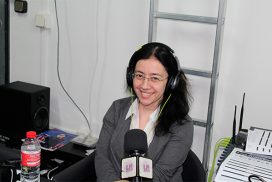 |
Carmen Fernández-PanaderoCarmen Fernández-Panadero is an associate professor of Telematics Engineering at Universidad Carlos III of Madrid. She has a degree in Physical Sciences from Universidad Complutense of Madrid and a PhD in Communications Technologies from Universidad Carlos III of Madrid. She has been working for Andersen Consulting in projects related with multimedia technology and Internet programming. Since 1999 she works at the Department of Telematics Engineering at the Carlos III University of Madrid (UC3M) where she has participated as researcher in several national and international projects. Her main research interests include dynamical systems characterization, creative learning environments (simulators, 3D-virtual worlds, mixed reality) and the use of gamification and storytelling to orchestrate learning experiences and provide transmedia learning outcomes.
|
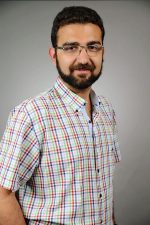 |
Carlos Alario HoyosCarlos Alario-Hoyos is a postdoctoral researcher and teaching assistant in the Department of Telematics Engineering at the Universidad Carlos III de Madrid with the fellowship Alianza 4 Universidades. He received M.S. and PhD degrees in Information and Communication Technologies from the Universidad of Valladolid, Spain, in 2007 and 2012 respectively. His main research interests include MOOCs, interoperability and software educational tools. During the last year he has been involved in the design and enactment of MOOCs deployed in the platform MiríadaX.
|
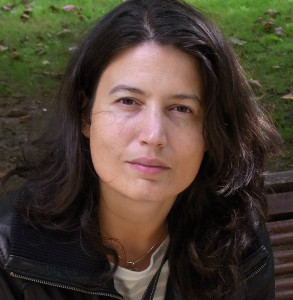 |
Iria Manuela Estévez AyresIria Estévez-Ayres is an assistant professor at the Telematics Engineering Department at Universidad Carlos III de Madrid. She obtained her Telecommunication Engineering degree from Universidad de Vigo in 2001 and her PhD from Universidad Carlos III de Madrid in 2007. After several years working in the research field of Distributed Real-Time Systems, with a focus on the applicability of service-oriented architectures to real-time and networked embedded systems, she switched her research interests to the field of Technology-Enhanced Learning, focusing on m-learning, MOOCs, and on the applicability of technology-enhanced techniques to active learning courses.
|
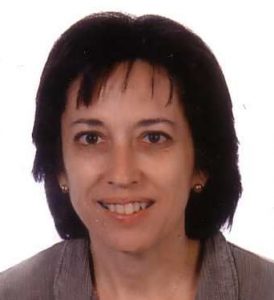 |
María Blanca IbáñezMaría Blanca Ibáñez is a Visiting Professor in the Department of Telematics Engineering at the Universidad Carlos III de Madrid. She received her Ph.D. degree in Computer Science from l’Institut National Polytechnique de Grenoble (France), and her B.Sc. and MsC. in Computer Science from the Universidad Simon Bolivar (Venezuela). Her main research interests are the use of MUVEs and augmented reality for education. |
|
|
|
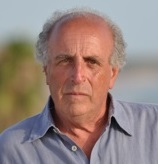 |
Antonio Rodríguez de las HerasAntonio Rodríguez de las Heras received a PhD degree in Philosophy and Literature from the University of Salamanca. He is currently Full Professor of Humanities, Comunication and Documentation at the Universidad Carlos III de Madrid and Director of the Institute of Culture and Technology at the University Carlos III of Madrid. He has been Dean of the Humanities, Comunication and Documentation Faculty at the same university and Director of the last 15 editions of the Master in Audiovisual Business Administration. He is author of several e-books; among them: “Por la orilla del hipertexto” y “Los estilistas de la sociedad tecnológica”. His work focuses on how society is being formed by the effect of technology and the consequent cultural and educational changes that occur and that should produce.
|
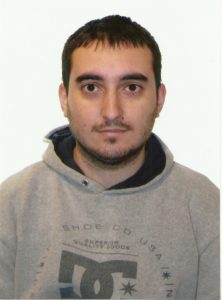 |
Pedro Manuel Moreno MarcosPedro Manuel Moreno Marcos is a PhD student and a pre-doctoral researcher through a FPU fellowship in the Department of Telematics Engineering at the Universidad Carlos III de Madrid (UC3M). He received his Bachelor in Telecommunications Technologies Engineering in 2015 as well as his Master Degrees in Telecommunication Engineering and Telematic Engineering, which were both obtained in 2017. All of them (bachelor and masters) were obtained at Universidad Carlos III de Madrid. Moreover, he has obtained several awards, including the Extraordinary Awards in the Bachelor Degree and both Master Degrees, and other awards which recognize his academic achievements and Master Thesis. His areas or research interest include learning analytics, Educational Data Mining and MOOCs (Massive Open Online Courses), and his PhD focuses on prediction of learners’ behaviors and indicators in online learning platforms.
|
Nuria González CastroNuria González is a Master in Telecommunications Engineering student who works as a research assistant in the Department of Telematics Engineering at the Universidad Carlos III of Madrid. She received her Bachelor’s Degree in Telecommunication Technologies Engineering in 2018. Her research is focused on conversational agents and the use of Semantic Web to improve the way students can access the different contents provided. |
|
Pablo Castillo SeguraPablo Castillo is a Master in Telecommunications Engineering student who works as a research assistant in the Department of Telematics Engineering at the Universidad Carlos III of Madrid. He received her Bachelor’s Degree in Telematics Engineering in 2018. His research is focused on developing surgical simulators for the assessment of technical skills with IoT. |
|
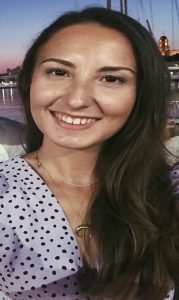 |
Ana Martín DíazAna Martín is currently studying a Bachelor in Telecommunications Technologies Engineering at the University Carlos III of Madrid, where she who works as a research assistant in the Department of Telematics Engineering. Her research is focused on the use of IoT for learning mathematics through a new learning methodology in primary schools. |
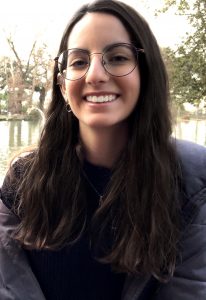 |
Raquel PérezRaquel Pérez is currently studying a Bachelor in Telecommunications Technologies Engineering at the University Carlos III of Madrid, where she who works as a research assistant in the Department of Telematics Engineering. Her research is focused on the analysis of data gathered from the edX platform. In particular, Raquel analyses the data related to the online discussion forums to try to gain insights about the relation between these data and the students’ grades. |
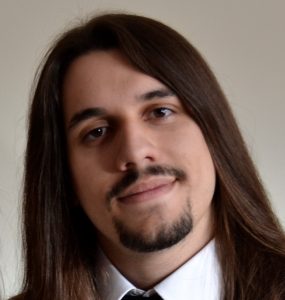 |
Adrían Carruana MartínAdrían Carruana is a PhD student, who works as a pre-doctoral researcher through a FPI fellowship in the Department of Telematics Engineering at the Universidad Carlos III de Madrid (UC3M). He received his Bachelor’s Degree in Computer Science and Engineering in 2015, and his Master in Informatics Engineering in 2017. His research is focused on Smart Education and Smart Learning Environments. |
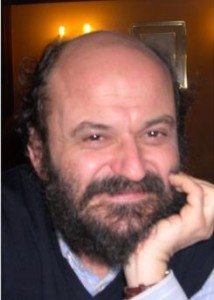 |
Yannis DimitriadisYannis A. Dimitriadis (PhD, 1992) is the coordinator of the GSIC/EMIC research group, Full Professor of Telematics Engineering and Director of the School of Doctoral Studies at the University of Valladolid. His current research interests include technological support to the orchestration of computer-supported collaborative learning processes, design for seamless learning in multiple spaces, the analysis of scalability issues in learning systems, and the optimal organization of groups in massive learning environments.
|
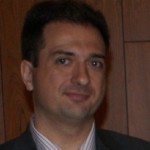 |
Juan I. Asensio-PérezJuan I. Asensio-Pérez received his MSc and PhD degrees in telecommunications engineering from the University of Valladolid, Spain, in 1995 and 2000 respectively. He is currently a full professor at the Department of Signal Theory, Communications and Telematics Engineering, University of Valladolid. His main research interests include technology-enhanced learning, with special focus on the support for full-lifecycle Learning Design processes, including the automatic setting up of physical and/or virtual learning environments at different scales.
|
 |
Eduardo Gómez-SánchezEduardo Gómez-Sánchez received his MSc and PhD degrees in telecommunications engineering from the Universidad de Valladolid, Spain, in 1996 and 2001 respectively. He is currently an associate professor at the Department of Signal Theory, Communications and Telematics Engineering, Universidad de Valladolid. He has researched on distributed applications for collaborative learning, and is now interested in the seamless integration of multi-party tools into scalable learning platforms, notably Virtual Learning Environments and MOOC platforms.
|
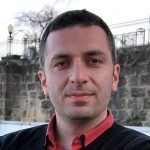 |
Miguel L. Bote-LorenzoMiguel L. Bote-Lorenzo received his MSc and PhD degrees in telecommunications engineering from the Universidad de Valladolid, Spain, in 2001 and 2005 respectively. He is currently an associate professor at the Department of Signal Theory, Communications and Telematics Engineering, Universidad de Valladolid. His main research interests include the application of machine learning and distributed systems within the context of technology enhanced learning and computer networks.
|
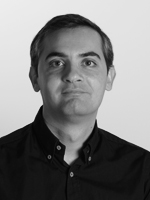 |
Guillermo Vega-Gorgojo |
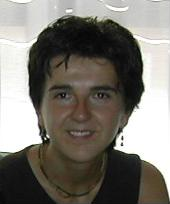 |
Alejandra Martínez-MonésAlejandra Martínez Monés, PhD, is associate professor of computer science at the University of Valladolid. Her research interests in the field of Technology-Enhanced Learning relate to how to use computers to support teachers and students in the application and evaluation of innovative teaching and learning strategies, especially CSCL situations. Her research contributions include the use of Social Network Analysis to support the evaluation of CSCL environments; the integration of scripting and monitoring strategies to enhance classroom orchestration, the use of augmented reality to support seamless integration of learning spaces; and the application of mixed methods to evaluate CSCL and other complex learning situations.
|
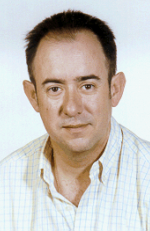 |
Bartolomé Rubia AviBartolomé Rubia Avi has a PhD in Curricular Design and Educational Research from the University of Valladolid and Degree in Philosophy and Educational Sciences from University of Granada. He is currently Associate Professor at the University of Valladolid (Spain), and Director of Centre for Transdisciplinary Research in Education (CETIE-UVa) (http://www.cetie.uva.es). He is research interested in educational implications of computer-supported collaborative learning scenarios, with special attention to new ways of evaluating these particular settings.
|
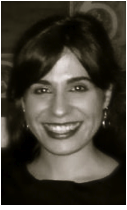 |
Sara Villagrá SobrinoSara Villagra Sobrino, Ph.D received the degree in Pedagogy from the University of Oviedo (Spain) in 2006. She is an assistant Professor at the University of Valladolid since 2008. His current research efforts are devoted to the study of the educational implications of technology enhanced learning (TEL) scenarios with special emphasis on fostering teacher’s skills during the design and the enactment of flexible CSCL activities in Primary Education settings. She is also interested in Mooc orchestration regarding the analysis of learning situations which take place in different scales.
|
 |
Sara García SastreSara García Sastre, Ph.D, is Assistant Professor in the Department of Pedagogy at the College of Education and Social Work (University of Valladolid) (Spain), where she teaches ICT to preservice teachers. Her main research interests are within the CSCL field, specially in the development of preservice teachers key competences in the use of ICT. Her recent research interests are focused on the analysis of massive online open learning environments (MOOC) and the use of active pedagogical approaches in these environments (eg. collaboration, gamification).
|
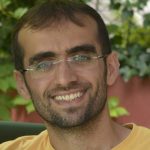 |
Erkan ErErkan Er received his PhD degree in Learning, Design, and Technology from the University of Georgia, USA, in 2016. He is currently working as a postdoctoral researcher in GSIC-EMIC research group in the Department of Telecommunications Engineering, in the University of Valladolid, Spain. His recent research interests include using machine learning and educational data mining techniques to understand and support student learning in massive contexts.
|
 |
Osmel Bordies LópezOsmel Bordiés López received his B.S. degree in Telecommunications Engineering from the Universidad de Oriente, Cuba, and his Master of Advanced Study (DEA) degree in Information and Communication Technologies from the University of Valladolid, Spain, in 2002 and 2010 respectively. He is currently a PhD candidate at the Departamento de Teoría de la Señal y Comunicaciones e Ingeniería Telemática, Universidad de Valladolid. His line of research spins around the conceptual and technological support for teachers in designing and particularizing complex CSCL scenarios. |
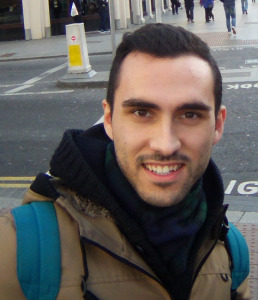 |
Alejandro Ortega ArranzAlejandro Ortega-Arranz received his BSc and MSc in telecommunications engineering from the Universidad de Valladolid, Spain, in 2014 and 2015 respectively. He is currently a PhD candidate at the Universidad de Valladolid. His main research interests include game-based learning and gamification methods and technologies.
|
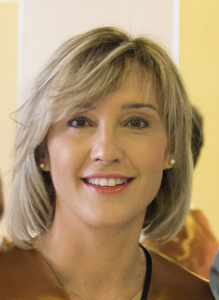 |
Luisa Sanz-MartínezLuisa Sanz-Martínez is a PhD candidate, with interest in MOOC orchestration, in particular work on group formation and transformation during a MOOC lifecycle.
|
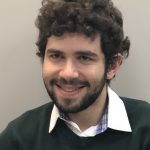 |
Sergio Serrano-IglesiasSergio Serrano-Iglesias received his BSc and MSc in Telecommunications Engineering from the University of Valladolid, Spain, in 2016 and 2017 respectively. He is currently a PhD candidate in the GSIC-EMIC Research Group at the University of Valladolid. His main research interests include Smart Learning Environments and the application of cloud computing for the support of learning.
|
 |
Paraskevi TopaliParaskevi Topali received her BSc and MSc in Pedagogy & Sciences in Education from the University of Ioannina, Greece, in 2014 and 2017 respectively. She is currently a Ph.D. candidate in the GSIC-EMIC Research Group at the University of Valladolid. Her main research interests include the identification and support of struggling learners using intelligent technologies.
|
 |
Cristina Villa-TorranoCristina Villa-Torrano received her BSc and MSc in Computer Science from the University of Murcia, Spain, in 2018 and 2019, respectively. She is currently a PhD candidate in the GSIC-EMIC Research Group at the University of Valladolid. Her main research interests include Learning Analytics and Smart Learning Environments. |
Beatriz Arranz-Carramolino
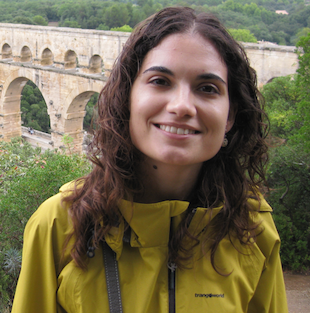 |
Davinia Hernández-LeoDavinia Hernández-Leo is Associate Professor and Serra Húnter Fellow at the Department of Information and Communications Technologies Department (DTIC) at UPF, the coordinator of the Interactive and Distributed Technologies for Education group (TIDE), Vice-Dean of the UPF Engineering School and the Head of its Unit for Teaching Quality and Innovation. She obtained a degree and a Ph.D on Telecommunication Engineering at University of Valladolid, Spain, and has been visiting researcher at Open University of the Netherlands, Fulbright Scholar at Virginia Tech and visiting academic at the University of Sydney. Her has (co-)authored over 100 scientific publications and received several awards, including best paper awards and the European award for excellence in the field of CSCL technology. Currently, she is the Vice-President of the European Association for Technology-Enhanced Learning, a member of the editorial board of the IEEE Transactions of Learning Technologies and the Steering Committee of the European Conference on Technology-Enhanced Learning.
|
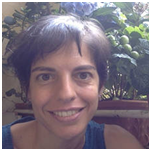 |
Mar Carrió LlachMar Carrió Llach is a visiting professor at the Department of experimental and health sciences at Universitat Pompeu Fabra (UPF). Member of the Health Sciences Educational Research Group (GRECS), coordinator of the Master degree of pre-service science teacher training, coordinator of the problem based learning courses in Human Biology Degree at the Faculty of Health and Life Sciences at UPF and the head of its Unit for Teaching Quality and Innovation. Mar is also a member of the Informatics Technology and Science Education research group (TIREC) from the Universitat Autònoma de Barcelona (UAB). She had her PhD in biotechnology on 2003 at the UAB and afterwards she specialized in science education. Actually her research area is focused on designing learning environments for collaborative and inquiry based learning methodologies and science teachers training.
|
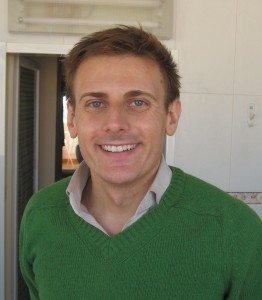 |
Manel Jiménez-MoralesManel Jiménez-Morales is a lecturer on Film and Television of the Universitat Pompeu Fabra (Barcelona) since 2000. He holds a PhD on Social Communication from this University, a Masters of Advanced Studies in the same field, and two undergraduates degrees: Audiovisual Communication (UPF) and Comparative Literature (Universitat de Barcelona). Doctor Jiménez-Morales has also been a Visiting Scholar in the Department of Literature in the University of Oxford (United Kingdom) and the Department of Theatre, Film and Television in the University of California, Los Angeles (UCLA), and contributed to a research for the British Film Institute (London). At this moment, he is the Delegate of the Rector for the Introduction of New Technologies in the Universty and Assistance to the Responsible of Research in the Department of Communication. His tasks as an academic extend to several lectures in national and international universities. He is also the codirector of the Masters in Writing Humor and Entertainment for Television, organised by El Terrat, one of the biggest production companies in Spain, and helped to create the Masters in Quality and Innovation on Television, coordinated by the Catalan public television (Televisió de Catalunya).
|
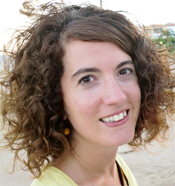 |
Patricia Santos RodríguezPatricia Santos has a Computer Engineering degree and a PhD in Information, Communication and Media Technologies, focused on the research areas of Technology Enhanced Learning (TEL) and Human Computer Interaction (HCI). From 2007-2013 she was a researcher member of the Interactive Technologies Group (GTI, UPF) involved in European and national projects (e.g. TenCompetence, Learn3, EEE). In 2011 she obtained her PhD with an Excellent – Summa cum Laude – qualification. From 2013-2016, she was a post-doc researcher at the University of the West of England (UWE, Bristol, UK), member of the European research project FP7 (Learning Layers: Scaling up Technologies for Informal Learning in SME Clusters) co-leading the research line based on understanding how to support and scaffold learners at their workplace. She also continued her research in the field of m-learning, e.g.: co-chairing the Ideas in Mobile Learning Symposium (Bristol) and collaborating with international m-learning companies such as Tribalgroup or Agylia. Since 2017, she is a senior researcher at the Interactive and Distributed Technologies for Education (TIDE, UPF) group. Throughout her professional career, the quality and innovativeness of her work has been recognized with many awards and publications. She has consistently positioned her research in the field of Technology-Enhanced Learning (TEL) with a focus on Human Computer Interaction (HCI), User-centered design and Learning Design (LD). Currently, she is exploring how relevant design techniques and methodologies from the fields of LD and HCI such as Design Thinking can be learnt and applied by students at school levels to create their own ubiquitous learning activities.
|
 |
Laia AlbóLaia Albó is an Audiovisual Systems Engineer from the Universitat Pompeu Fabra (UPF). She has a master’s degree in Education and ICT (e-learning) from the Universitat Oberta de Catalunya (UOC). One of its main objectives is to conduct research in e-learning and emerging technologies in education which drove her to pursue a doctorate in the field of Technology Enhanced Learning in the Department of Information and Communication Technologies at UPF within the TIDE research grup. She has collaborated as a researcher at Telefonica-UPF chair, “Social Innovation in Education” which is especially dedicated for education innovation and MOOCs. Furthermore she had been working as a technical researcher during the first two years of the UCATx program. She is working on her doctoral research focused on investigating how technology can support professors in the design of blended learning approaches with MOOCs. Her research interests focus on Technology Enhanced Learning, Learning Design, MOOCs, Blended Learning, Human Computer Interaction, Teaching (Programming) and Education.
|
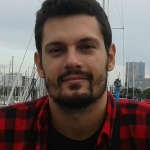 |
Konstantinos MichosKonstantinos Michos is a PhD student in the Interactive and Distributed Technologies for Education (TIDE) Group at the Information and Communication Technologies Department of the Universitat Pompeu Fabra in Barcelona. He received his B.Sc in Teaching from the University of Thessaly in Greece and his M.Sc in Educational Technology and Knowledge Management from the University of Saarland in Germany. His research interests lie in the fields of Computer Supported Collaborative Learning, Learning Design and Learning Analytics. Konstantinos investigates support for informal learning in online communities of practice as well as technologies for effective learning and teaching in blended and online environments.
|
 |
Pablo AbeniaPablo Abenia has a degree in Computer Engineering by the UPF. Incorporated in the group since 2012 he is a senior developer and IT admin. Responsible for ILDE platform current development he has made several contributions among them code refactoring, speed optimization, interoperable API design and implementation, web services, usage monitoring and analytics visualization. He has also developed several interactive web applications required for our group projects leveraging technologies like PHP, Python, TypeScript, WebSockets, Node.js or WebGL. Developments include PyramidApp, which allows real time collaborative learning flow decisions, and the ChangeMakers game, which is a browser based educational game in the context of the European project ChangeMakers. On the IT front he is in charge of the group server infrastructure management which includes virtual machines set up, software deployment and administration of databases and storage resources needed in order to provide the services required for all of the groups projects.
|
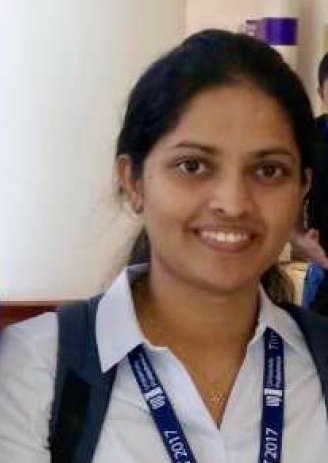 |
Ishari AmarasingheIshari Amarasinghe is a PhD Student in the Information and Communications Technologies Department of Universitat Pompeu Fabra (UPF), Barcelona. She received her BSc in Information and Communication Technologies (First Class) from the University of Colombo School of Computing, Sri Lanka. She received her Master’s in Intelligent interactive Systems from the UPF. Her Master thesis work was related to “Intelligent Group Formation in CSCL Scripts” in which she focused on developing optimization algorithms to formulate learner groups while adapting to learner characteristics. Her research interests situated at the intersection of the Computer Supported Collaborative Learning and Machine Learning, focusing on the design of intelligent collaborative learning systems. Her current work focuses on supporting educators to make data-informed design decisions for collaborative learning scripts as well as orchestration collaboration using software agents.
|
 |
Marc BeardsleyMarc Beardsley is a PhD student at UPF with a Master in Cognitive Systems and Interactive Media (UPF) and a Bachelor of Commerce (University of British Columbia). He also holds a Masters Certificate in Project Management from the University of Victoria and is a certified Project Management Professional (PMP®). Marc has 15 years of industry experience that spans work in Canada, Thailand, and Japan; and includes the co-founding and managing of a 6-person corporate training company and an e-commerce venture that grew to over 50 employees. His research interests lie at the intersection of neuroscience and education – and focus on how technology can support educators in better facilitating the development of effective lifelong learners. He initiated and is currently the project lead for Erasmus+ Project Illuminated (2017-2020) – Illuminating Effective Teaching Strategies with the Science of Learning. The interdisciplinary project involves experts in the fields of neuroscience and education technology and works with partners in Finland, Portugal and Greece.
|
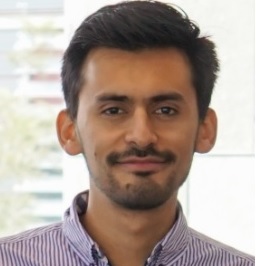 |
Nicolás Felipe GutiérrezNicolás Gutiérrez is a PhD Student in the Information and Communications Technologies Department of Universitat Pompeu Fabra (UPF) and active researcher at the Interactive and Distributed Technologies for Education (TIDE) group. He received his BSc in Electronics Engineering and MSc in Industrial Automation from the Universidad Nacional de Colombia, where he was involved as teaching assistant in the Electrical and Electronics Engineering Department, and as researcher in projects founded by the Ministry of National Education. He has also experience in hardware and software design with focus in telemetry and assets management. His research interests are focused on Educational Technologies, Technology-Enhanced Learning, Learning Analytics and Hardware and Software Design. |
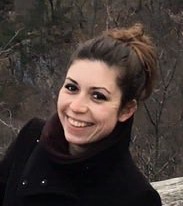 |
Milica VujovicMilica Vujovic is a INPhINIT “la Caixa” Marie Curie PhD candidate in Interactive and Distributed Technologies for Education (TIDE) Group in the Department of Information and Communication Technologies at Universitat Pompeu Fabra (UPF), Barcelona. Architectural and mechanical engineer with a history of working in the academia, architecture, mechanical and industrial engineering industry. Also, owns previous experience in teaching, within multidisciplinary subjects held at the Faculty of Architecture, University of Belgrade. Subjects referred to human interaction in smart environments and mechatronic solutions in architecture. Obtained a Master’s Degree in Architecture (2011) and Master’s Degree from Faculty of Mechanical Engineering (2014). Skilled in SolidWorks, AutoCAD, Computer-Aided Design (CAD), Revit and Matlab. Her research interests focus on Mechatronics, Human Computer Interaction and Smart Environment.
|
